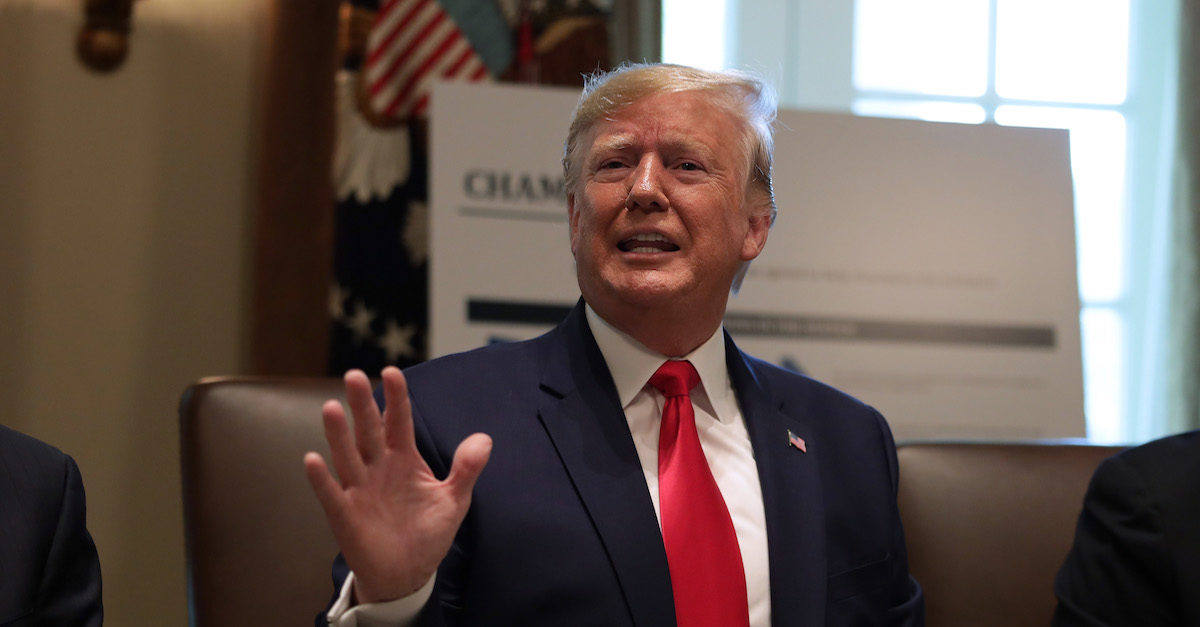
In further defiance of Attorney General William Barr’s pleas to stop criticizing the federal judiciary, President Donald Trump on Tuesday lashed out at two of the Supreme Court’s liberal justices, once again couching his condemnation in the words of a Fox News host.
The targets of Trump’s ire were Justice Sonia Sotomayor, who penned a “sharp” and “powerful” and “blistering” dissent last week criticizing the high court’s conservative bloc for being too deferential to the Government, and Justice Ruth Bader Ginsburg, who in 2016 referred to then-candidate Trump as a “faker.” Legal experts quickly pointed out that the president’s diatribe against Sotomayor greatly misconstrued what the justice actually wrote in her dissent.
“‘Sotomayor accuses GOP appointed Justices of being biased in favor of Trump,’” he wrote Tuesday morning, quoting Fox News’s Laura Ingraham. “This is a terrible thing to say. Trying to ‘shame’ some into voting her way? She never criticized Justice Ginsberg when she called me a ‘faker’. Both should recuse themselves on all Trump, or Trump related, matters!”
“While ‘elections have consequences’, I only ask for fairness, especially when it comes to decisions made by the United States Supreme Court!” he continued.
Asked why he thought Sotomayor should recuse herself from future cases involving his administration during a press conference in India early Tuesday, Trump did not go into detail, merely stating that “what she said yesterday” was “so inappropriate.”
Ginsburg’s comments about Trump, then the presumptive Republican nominee, were widely criticized. She even said she regretted making them. Sotomayor rebuked the Supreme Court’s conservative justices by claiming they have a willingness to seemingly oblige the government’s every whim. She took issue with lifting a statewide injunction on the administration’s “public charge” policy instead of allowing the appellate process to play out, and consistently benefitting the Government over legal challengers.
“Claiming one emergency after another, the Government has recently sought stays in an unprecedented number of cases, demanding immediate attention and consuming limited Court resources in each. And with each successive application, of course, its cries of urgency ring increasingly hollow,” she wrote. “Perhaps most troublingly, the Court’s recent behavior on stay applications has benefited one litigant over all others. This Court often permits executions—where the risk of irreparable harm is the loss of life—to proceed, justifying many of those decisions on purported failures ‘to raise any potentially meritorious claims in a timely manner.’”
University of Iowa law professor Andy Grewal reiterated the malapropos nature of Ginsberg’s 2016 comments but defended Sotomayor.
“Justice Ginsburg’s inappropriate public remarks have cast doubt on the independence of the judiciary, but I can’t imagine a single thing wrong with Justice Sotomayor’s recent dissent,” he wrote.
https://twitter.com/AndyGrewal/status/1232291491831336960
University of Texas School of Law professor Stephen Vladeck explained that Sotomayor’s dissent “accuses the majority of wrongly tipping the scales for emergency relief in favor of the federal government—not of pro-Trump bias.”
“She’s right,” he said.
Vladeck also suggested the president’s comments were indicative of how misinformation spreads through Fox News.
Professor Eric Segall of Georgia State College of Law agreed, writing, “The base doesn’t care what [Sotomayor] actually said, just what Fox says she said.”
Anti-Trump critic Harvard Law professor Laurence Tribe called Trump’s demand “preposterous.”
https://twitter.com/tribelaw/status/1232266430306975746?s=20
George Washington University law professor Jonathan Turley also disagreed with the president’s suggestion that Sotomayor should recuse herself.
[image via Alex Wong/Getty Images]